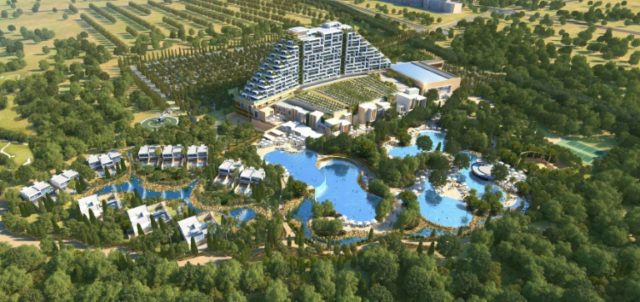Nicosia (AFP) – Cyprus started work Friday on building what has been billed as the largest casino resort in Europe costing 550 million euros ($650 million) and creating thousands of jobs on the holiday island.
President Nicos Anastasiades took part in a ground breaking ceremony for the “City of Dreams Mediterranean” complex in the southern town of Limassol, calling it the biggest investment project ever undertaken in Cyprus.
“Today is a historic day, marking a major milestone,” he said. “By 2021, Cyprus’s first integrated casino resort, a landmark also for the wider region, will be fully operational.”
The project is expected to create around 4,000 jobs annually during construction and help generate around 6,500 full-time posts when the resort is fully operational, he said.
The government forecasts the casino resort will generate around 700 million euros, or four percent of GDP, from the second year of operation, while attracting an extra 300,000 tourists a year.
A record 3.65 million tourists visited Cyprus last year, spending an unprecedented 2.6 billion euros.
A tourism boom has helped Cyprus return to growth following a 10-billion-euro (then $13-billion) IMF and EU bailout to rescue its crumbling economy and insolvent banks in 2013.
The casino complex will have 500 hotel rooms, a gaming area of 7,500 square metres (80,000 square feet) and an expo centre spanning more than 9,600 square metres.
The partnership between Macau’s Melco International and Cyprus’ CNS Group will hold 136 gaming tables, 1,200 gaming machines and 11 restaurants, creating the first casino resort in the internationally-recognised south of Cyprus.
A temporary casino is to open in Limassol later this month, while satellites in other towns including the capital Nicosia should all be operating by next year.
There have long been casinos in the breakaway Turkish Republic of Northern Cyprus, recognised only by Ankara, but opposition from the Orthodox Church and fears over the social dangers of gambling had kept them out of the Greek Cypriot south.

COMMENTS
Please let us know if you're having issues with commenting.